Since the winning of the Roman Juriga Award of the European Christian Environment Network (ECEN) in 2018 the Eco-congregation Hungary has been improving its foreign connections to share their experiences with like-minded churches across Europe. In 2019 the Church of Scotland, Reformed Church in Hungary are working together with Okogyulekezet (Eco-congregation) Hungary, Department of Care for Creation
(Károli Gáspár University of the Reformed Church in Hungary), Eco-Congregation Scotland, and a UK charity The Orchard Project launched the Church and Community Orchards Twinning. The project is founded by ECEN and the partner churches.
The first meeting has been taken place in Duddingston Kirk Edinburgh on 18 June 2019 when Rev Dr. Tamás Kodácsy spoke about the Hungarian fruit trees project, and the participants visited the local church orchard.
According to the project plan, four congregations from both sides should have met in Hungary and then in Scotland to share and to inspire each other, but the pandemic did not allow the travel. Nevertheless, the Scottish churches started planting fruit trees, and the stimulating encounters was organized online.
First meeting
On the 11th of February members from various churches across Scotland supported by The Orchard Project and Hungary held a meeting online to share their results.
The meeting started with and introduction of the participants and a devotional reading of Genesis 2,7-9. Then the Newton Mearns Baptist Church of Glasgow introduced their orchard project which had a splendid start in 2019 with many people from the church and the local community taking part in the planting on St. Andrews Day. However, 2020 has brought some unexpected challenges: the pandemic, dry weather and even vandalism. To overcome the difficulties the church has organized workshops in pruning and gardening. This year they are raising awareness for biodiversity and caring for creation so that people from outside the church can be reached in this fast-growing residential area.
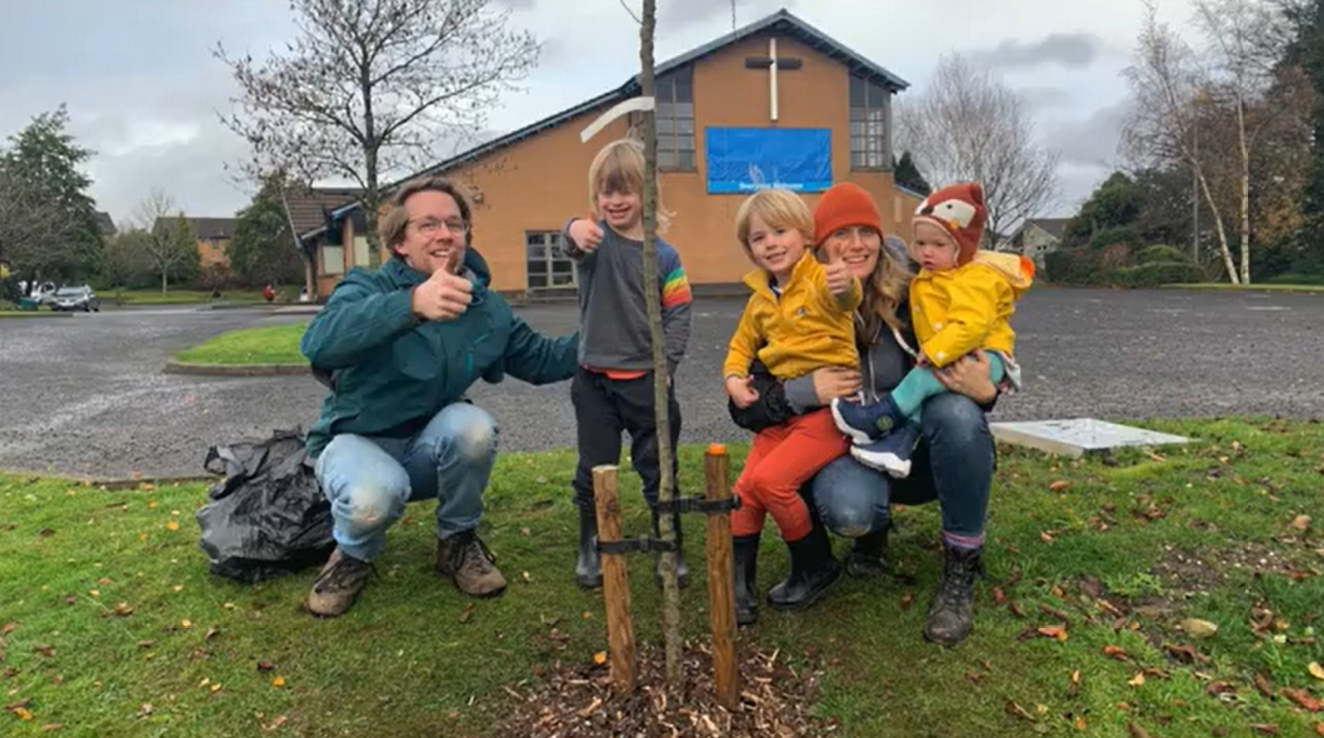
Source: Newton Mearns Baptist Church of Glasgow
Next the Reformed Church of Szólád was introduced. Their project started in 2015: since then it is bearing fruit both figuratively and literally. The 100-ish native fruit tree in their orchard is taken care of by the church community: planting, feeding, and harvesting included. They also have equipment for food processing: the products of Soladium, various juices and jams are demanded not just by locals. The fruits of neighboring farmers are also processed here. A small vegetable garden is also part of the orchard, where the children from the kindergarten are taught to plant, care, and harvest vegetables. We were told that the whole orchard is pesticide-free: pests are taken care of by their natural predators, which might take longer but also yields a better result. This is also a virtue of native species: they are much more resistant to native pests and diseases.
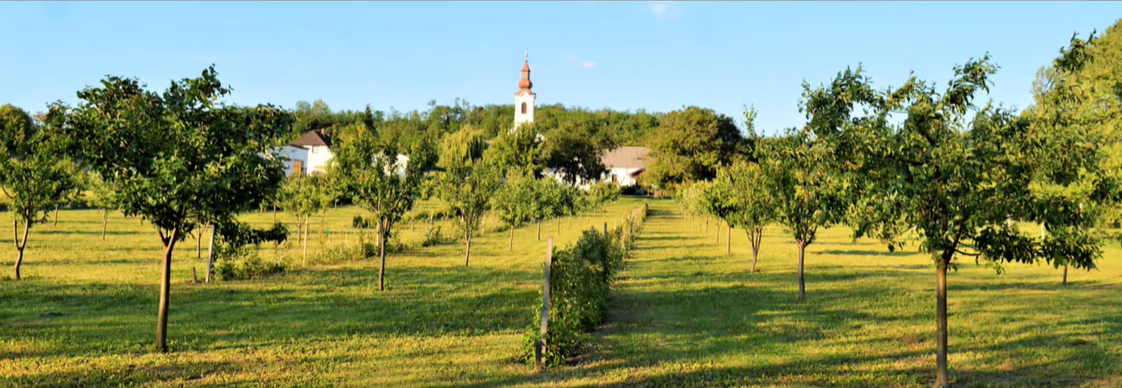 Source: Reformed Church of Szólád
Source: Reformed Church of SzóládFinally, we got to know St. Ninian Episcopal Church of Edinborough. Their project was preceded by thorough preparations: terrain selection, training and choosing of the specific apple trees. The planting was observed in November 2019 by local guests and the bishop of Edinborough who also planted a tree. The five trees are planted on the side of the church garden to be seen by people going by. After one-year wildflowers and strawberries were planted under them in an effort to preserve and promote native species. Their efforts have found followers in the Episcopal Church: the next garden was planted next to the cathedral and the nursery and churches around Scotland are looking for ways to engage with them.
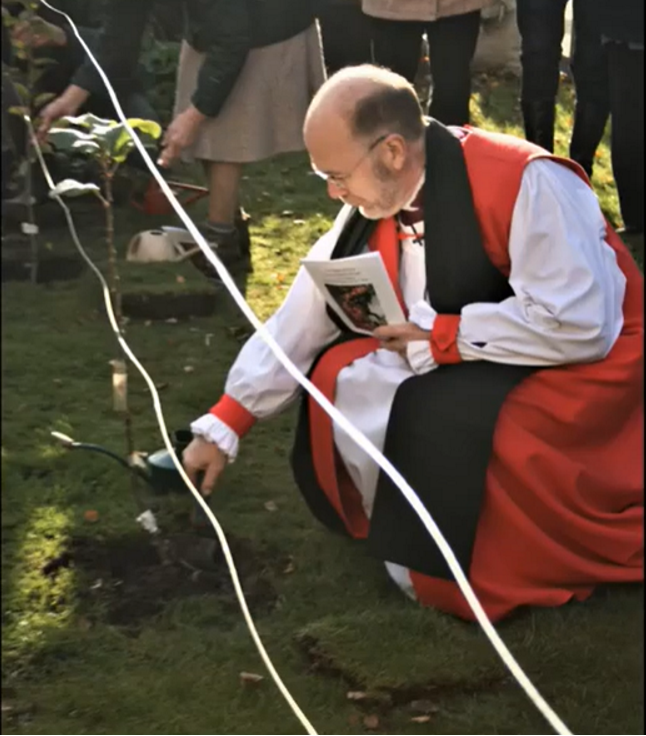 Source: St. Ninian Episcopal Church of Edinborough
Source: St. Ninian Episcopal Church of EdinboroughSecond meeting
The second meeting of the Community Orchards Twinnings took place on the 25th of February. Four more churches have introduced their orchard projects, each unique in setting and goals. First the Greyfriars Kirk of Edinborough shared their experiences. They have planted 6 native trees in the famous Greyfriars cemetery which has inspired characters and places in J. K. Rowlings Harry Potter series. The church intends to include the trees in the guided tours of the cemetery in order to reach the visitors with the gospel and raise attention for protecting biodiversity and Creation. Since the beginning they have been partnered with the local episcopal church and the Grassmarket Community Project which takes care of the trees. The trees were all planted in cooperation with the local government and churches which raises hopes for the reach of the project.
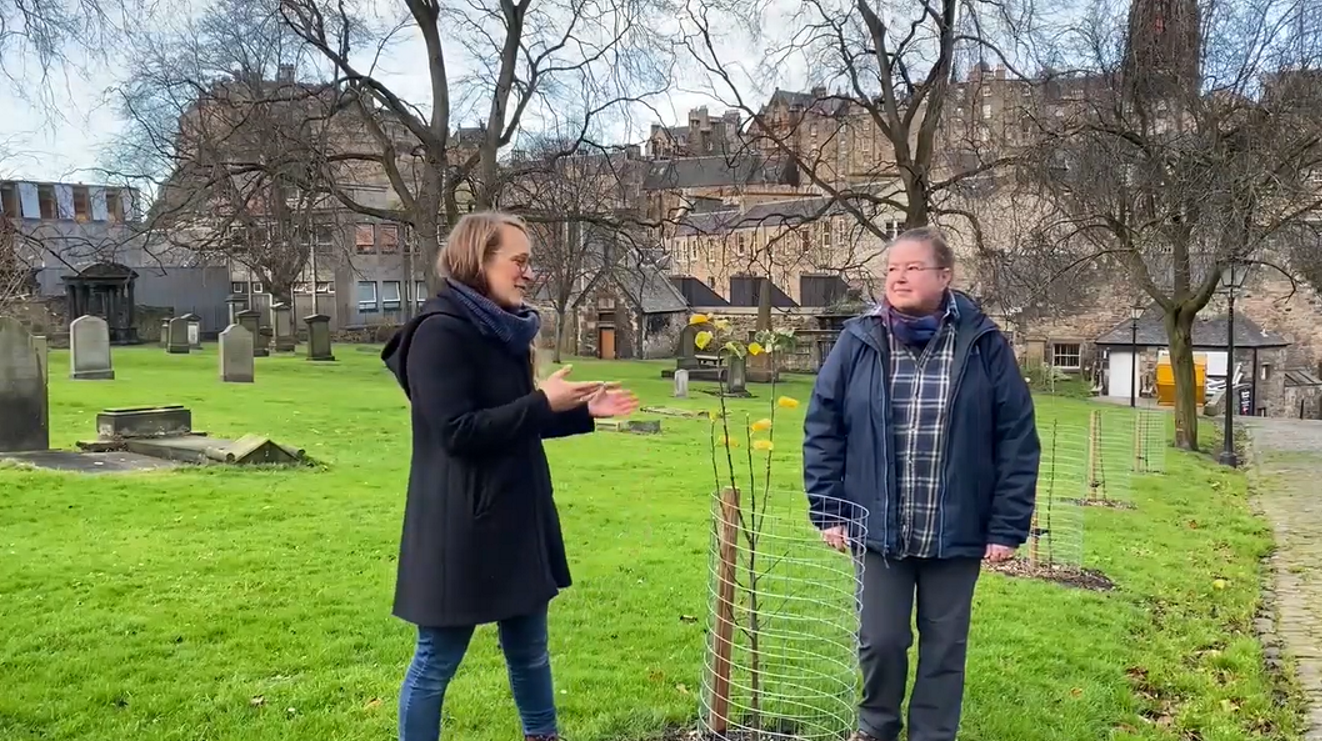 Source: Greyfriars Kirk of Edinborough
Source: Greyfriars Kirk of EdinboroughThe next was the Reformed Church of Hajdúnánás in the northeastern part of Hungary. They have been engaged in ecological projects since 2011 and today it permeates all aspects of the community. The residents of the elderly care have the knowledge and skill to learn from and the pupils of the church school are motivated and trained in ecological thinking and lifestyle. They are very gracious for having this wide spectrum of members and projects and hope to spread their influence wider in the town and beyond. Raising awareness and living responsible to God in caring for Creation is their main goal.
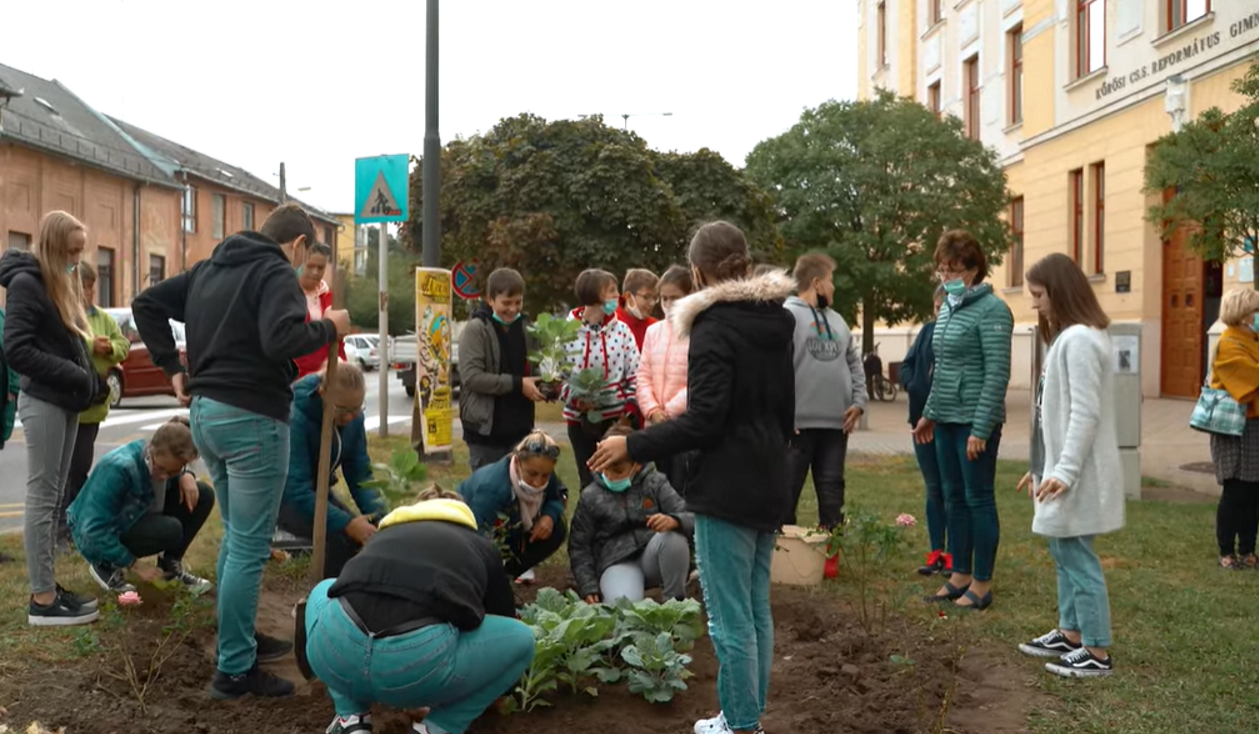 Source: Reformed Church of Hajdúnánás
Source: Reformed Church of HajdúnánásThe Colston Milton Parish Church in Glasgow also planted the first tree in 2011 in the northern part of the city where the church is located. The former industrial district has been declining in the past decades and now it is largely overgrown. The program started with great enthusiasm despite the area being a harsh place to begin. Last year it even spilled over to the local school where the pupils have planted nine native fruit trees which they are taking care of. In fact, the school was looking for opportunities to teach the children outside the classroom and they were keen on the joint project. The church is gracious for their orchard of 100 trees and how it was taken care of – by church members but mostly by God. Even when some of were vandalized and the weather was unforgiving the trees kept growing and bearing fruit and providing fresh fruits for the locals. The church is hoping for their example to gain attention and to spread over to the neighboring areas.
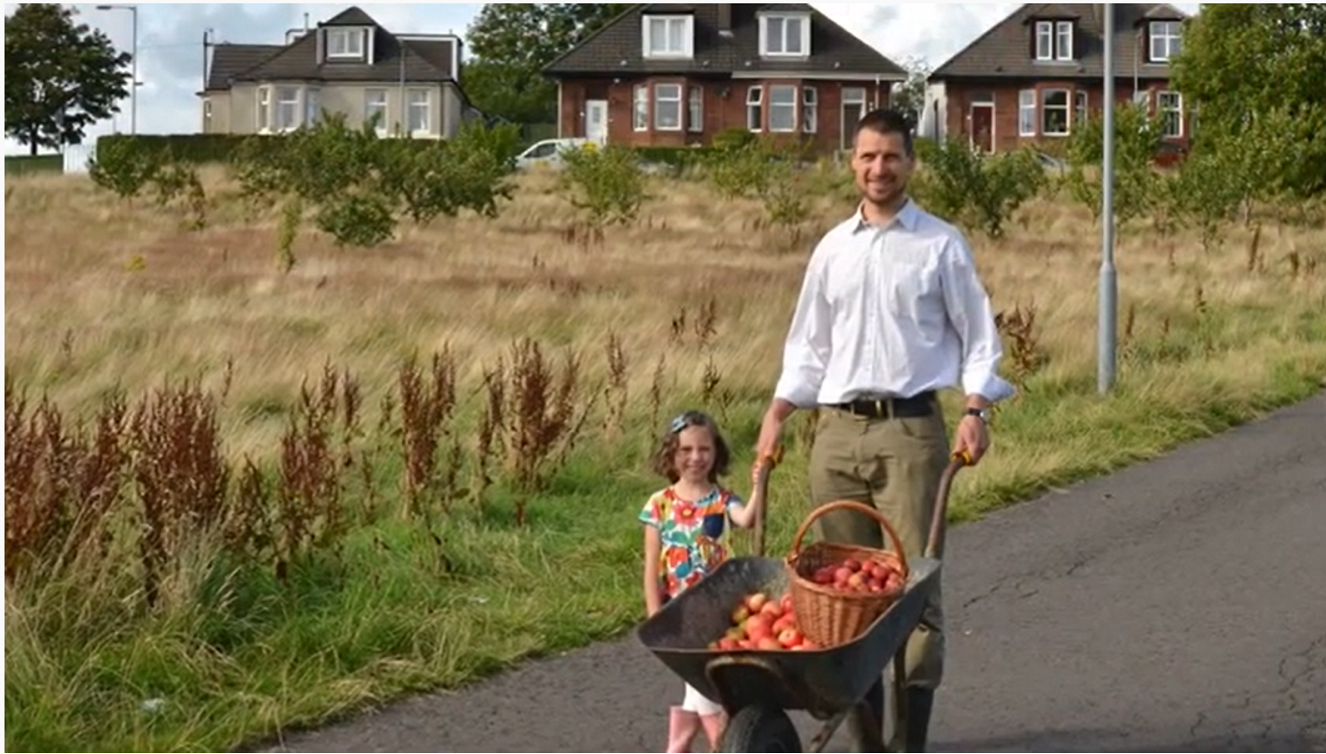 Source: Colston Milton Parish Church in Glasgow
Source: Colston Milton Parish Church in GlasgowLast but not least the Reformed Church of Telkibánya introduced themselves. They started their project in 2013 with clearing the land of the parsonage which lay abandoned for decades. They planted native fruit trees and in the next years herbs, flowers, and various plants around them, expanding the orchard also with boards and signs, also children’s projects. The garden was awarded in 2017 and since then it also started to bear fruit – however a plentiful harvest is yet to be had. Children from across the country and from differing backgrounds are visiting the orchard for educational purposes. The pastor noted that while in past centuries it was normal for a church to have large fields and members to be working on it – sometimes it was also a large part of the pastors living – this attitude has changed in the last century and now it is hard to make people feel responsible for their surroundings and the whole of Creation. Their vision is to resurrect this responsibility and to learn how work in the fields can be translated into work in the hearts.
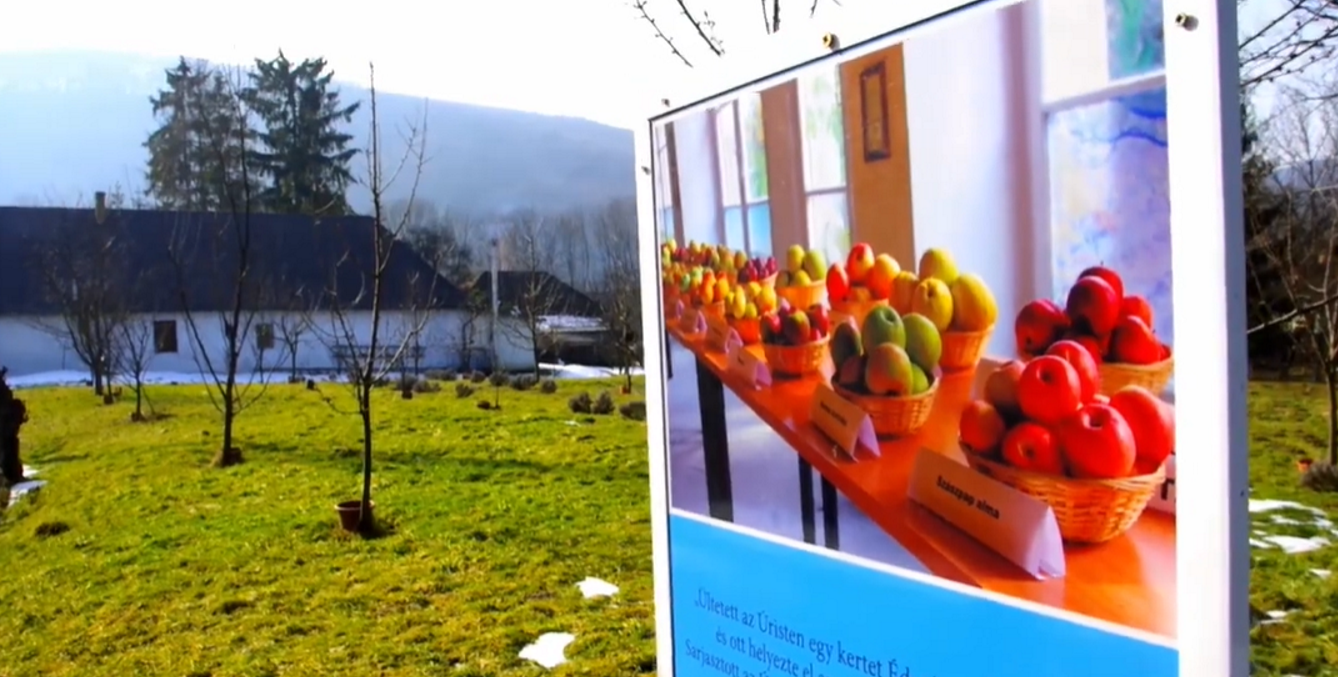 Source: Reformed Church of Telkibánya
Source: Reformed Church of TelkibányaEach introduction was followed by a lush Q&A and everyone was excited to hear each other out. The meeting was closed with a common prayer.
Written by Dániel Ilosvai
The next step will be a public online event on Monday 19th April 2021 at 7pm (BST). It is free, you are very welcome on it, please join us here:
Topic: Scotland/ Hungary Church Orchard Twinning Project
Time: Apr 19, 2021 07:00 PM London
Join Zoom Meeting
Meeting ID: 852 5383 5178
Passcode: 065696
The project along with another five ECEN twinnings will be presented on 31 May at 13th ECEN Assembly.
Please watch the videos of partner congregations in the twinning!




